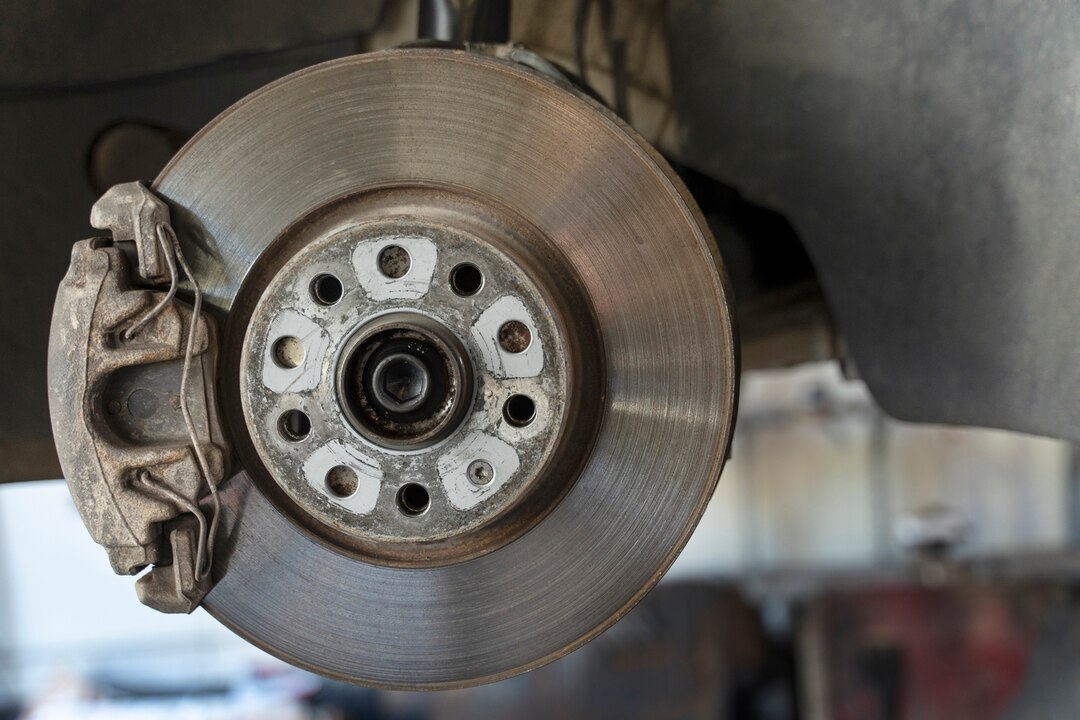Brake calipers are critical components of your vehicle’s braking system, responsible for applying pressure to the brake pads, which then clamp down on the rotors to slow or stop the vehicle. Over time, brake calipers can wear out or malfunction, compromising your car’s ability to stop safely. Recognizing the warning signs of failing brake calipers is essential for maintaining road safety and preventing costly damage. Here are ten signs that indicate your car’s brake calipers may need replacement:
1. Spongy Brake Pedal:
If you notice that the brake pedal feels spongy or mushy when pressed, it could be a sign of air in the brake lines or a failing brake caliper. Air bubbles in the brake fluid can prevent the calipers from applying sufficient pressure to the brake pads, resulting in decreased braking performance.
2. Uneven Brake Pad Wear:
Inspect your brake pads regularly for signs of uneven wear. If one brake pad appears significantly more worn than the others, it may indicate that the corresponding caliper is sticking or not applying pressure evenly.
3. Brake Fluid Leaks:
Visible leaks of brake fluid around the wheels or brake calipers are a clear indicator of a problem. Leaking brake fluid can lead to loss of hydraulic pressure in the braking system, resulting in reduced braking power and potential safety hazards.
4. Sticking Brake Calipers:
A sticking or seized brake caliper can cause the brakes to drag or lock up, leading to excessive heat buildup and premature wear of brake components. If you notice one wheel getting excessively hot after driving, it could be a sign of a sticking brake caliper.
5. Squealing or Grinding Noise:
Unusual noises, such as squealing, grinding, or scraping sounds when applying the brakes, are often indicative of brake caliper issues. These noises may result from worn brake pads, damaged caliper pistons, or improperly lubricated caliper slides.
6. Pulling to One Side:
If your car pulls to one side when braking, it may indicate uneven brake pad wear or a sticking brake caliper on one side of the vehicle. This can compromise steering control and pose a safety risk, especially at high speeds or during emergency maneuvers.
7. Vibrations or Pulsations:
Experiencing vibrations or pulsations in the brake pedal or steering wheel when braking could be a sign of warped brake rotors or uneven brake pad wear caused by malfunctioning calipers. Addressing the issue promptly is essential to prevent further damage and ensure safe braking.
8. Reduced Braking Performance:
A noticeable decrease in braking performance, such as longer stopping distances or increased pedal effort, is a clear indication of potential brake caliper problems. Ignoring these warning signs can lead to unsafe driving conditions and increased risk of accidents.
9. Dashboard Warning Lights:
Modern vehicles are equipped with brake system warning lights that illuminate when there is a problem with the braking system. If the brake warning light appears on your dashboard, it’s essential to have your vehicle inspected by a qualified mechanic to determine the cause, which may include failing brake calipers.
10. Visible Damage or Corrosion:
Inspect the brake calipers visually for any signs of damage, corrosion, or fluid leaks. Cracked or corroded calipers should be replaced immediately to prevent further deterioration and ensure safe braking performance.
Your car’s brake calipers play a crucial role in maintaining safe driving conditions and preventing accidents on the road. Recognizing the warning signs of failing brake calipers and addressing them promptly is essential for ensuring optimal braking performance and vehicle safety. If you experience any of the signs mentioned above, it’s advisable to have your car inspected by a qualified mechanic to determine if brake caliper replacement is necessary. By prioritizing regular maintenance and addressing issues promptly, you can drive with confidence knowing that your brakes are in optimal condition.











